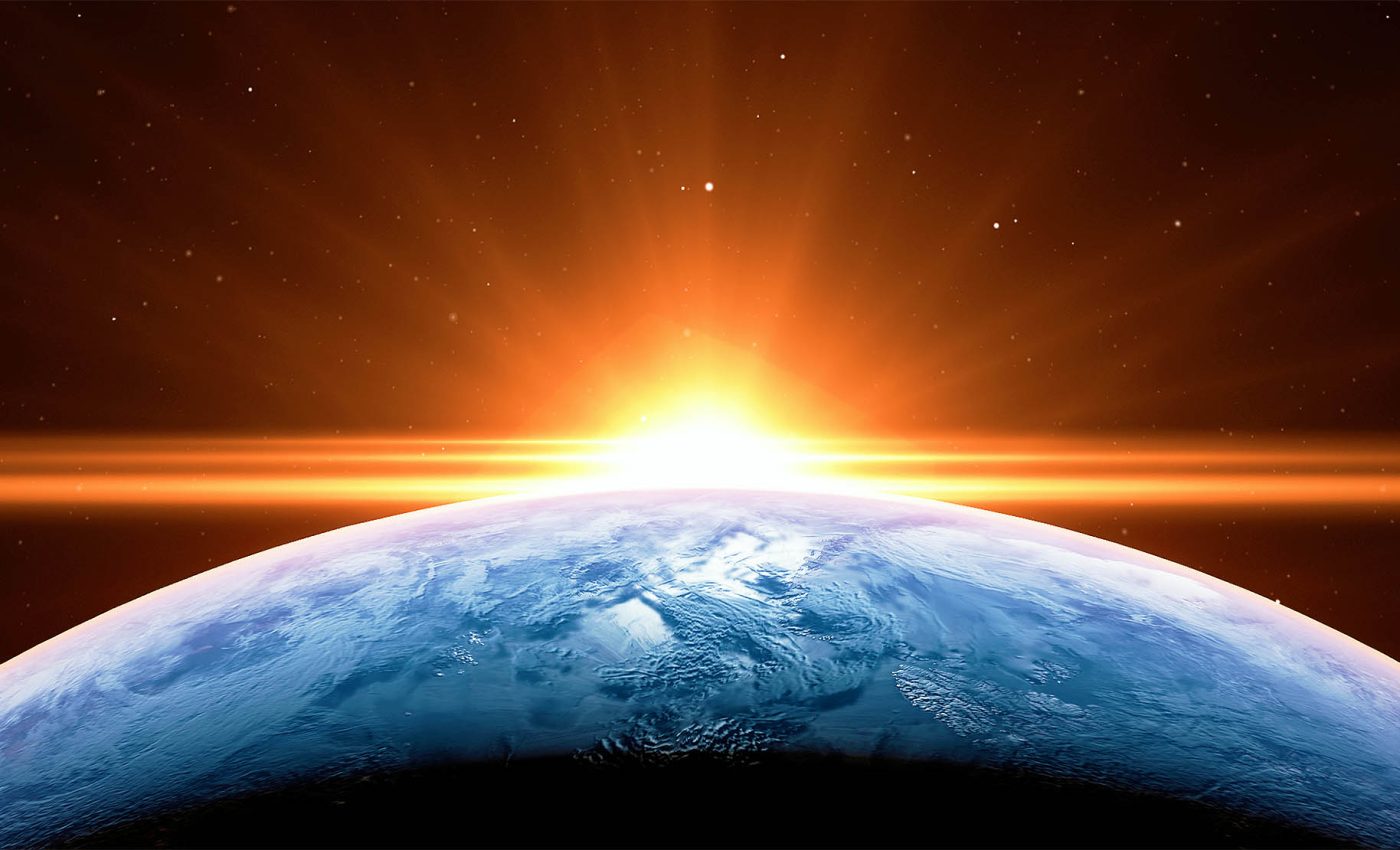
Our days are getting longer at an 'unprecedented rate' due to Earth's spin
Earth, the lovely blue marble we call home, is changing. The culprit? Climate change. On top of warming weather and rising seas, it’s causing the ice masses in Greenland and Antarctica to melt, slowing Earth’s rotation and slowly lengthening our days.
How could climate change possibly alter our planet’s rotation, you ask? As the polar ice continues to melt at an ever-increasing pace, water from these typically frosty regions is rushing into the world’s oceans.
And guess where most of it is headed? Right smack into the girth of our planet, the equatorial region.
Rotation and Earth’s changing climate
The phenomena unfolding due to climate change’s ice melt at both poles can be better appreciated through the insights of a seasoned expert.
Enter Benedikt Soja, a distinguished Professor of Space Geodesy at the Department of Civil, Environmental and Geomatic Engineering at ETH Zurich.
According to Soja, this shift in mass affects the Earth’s rotation. How so?
“This means that a shift in mass is taking place, and this is affecting the Earth’s rotation,” explains Soja. “It’s like when a figure skater does a pirouette, first holding her arms close to her body and then stretching them out,” Soja says.
The spinning pace slows down when the skater’s arms move away from the rotation axis, adding to the physical inertia.
This same principle — the law of conservation of angular momentum — governs the Earth’s rotation as well. Days on Earth are growing longer, albeit minimally, due to climate change slowing our planet’s spin.
Each passing day is a bit longer
With the backing of NASA, Soja’s group from ETH Zurich has put forth two compelling studies, published in Nature Geoscience and Proceedings of the National Academy of Sciences (PNAS), discussing how climate change tugs at the Earth’s polar movement and alters the day’s length.
Contrary to popular belief, the moon’s gravitational pull isn’t the only force influencing the length of our days. Climate change is sneaking its hand on the clock as well.
According to the PNAS study, every passing day is marginally longer than its previous because of the water moving from the poles to lower latitudes, and thus halting the pace of rotation.
Soja warns, “We humans have a greater impact on our planet than we realize, and this naturally places great responsibility on us for the future of our planet.”
Climate change and Earth’s rotation
As the ice continues melting, it’s not just about a slower Earth spin or extended days. The researchers show that the melting ice also alters the Earth’s rotation axis, causing the points where the rotation axis meets the Earth’s surface to shuffle around.
This movement, termed polar motion, spans some ten meters per hundred years. The causes are not solely surface changes, but deep-seated movements within the Earth’s mantle and the heat flows in the liquid metal of Earth’s outer core.
By using physics-informed neural networks, this team has put together the most extensive model to date, presenting a comprehensive explanation for the causes of long-period polar motion.
“For the first time, we present a complete explanation for the causes of long-period polar motion,” says Mostafa Kiani Shahvandi, one of Soja’s doctoral students and lead author of the study.
“In other words, we now know why and how the Earth’s axis of rotation moves relative to the Earth’s crust.”
This research uncovers the connected and reciprocal nature of the processes occurring both on and inside Earth. Climate change is affecting the very spin and movement of our home planet.
Humanity needs to wake up
Climate change’s impact on Earth’s rotation is also anticipated to alter the actual dynamics and mechanics of the Earth’s internal core.
Kiani Shahvandi adds, “Ongoing climate change could therefore even be affecting processes deep inside the Earth and have a greater reach than previously assumed.”
But these shifts, while fascinating, are not reason enough for panic. The effects are minor, and it’s unlikely that they pose a significant risk.
What’s crucial, however, is the reminder that we, as a species, have a significant impact on the very essence and workings of our planet.
Even a slight deviation of just one centimeter on Earth can grow to a deviation of hundreds of meters over the huge distances involved in the orbital mechanics of space travel.
A tiny nudge off-course here can lead to a giant leap of a miscalculation beyond our world. As Soja warns, it might just be the difference between landing in a microbe-filled crater on Mars and missing it completely.
“If the Earth’s rotation is changing only slowly, this effect has to be taken into account when navigating in space — for example, when sending a space probe to land on another planet,” Soja says.
So, next time you look up at the sky, spare a thought for how our actions are subtly altering Earth’s dance in space. This is our world, our responsibility. How will we choose to lead the dance?
The study is published in the journal Proceedings of the National Academy of Sciences.
—–
Like what you read? Subscribe to our newsletter for engaging articles, exclusive content, and the latest updates.
Check us out on EarthSnap, a free app brought to you by Eric Ralls and Earth.com.
—–













